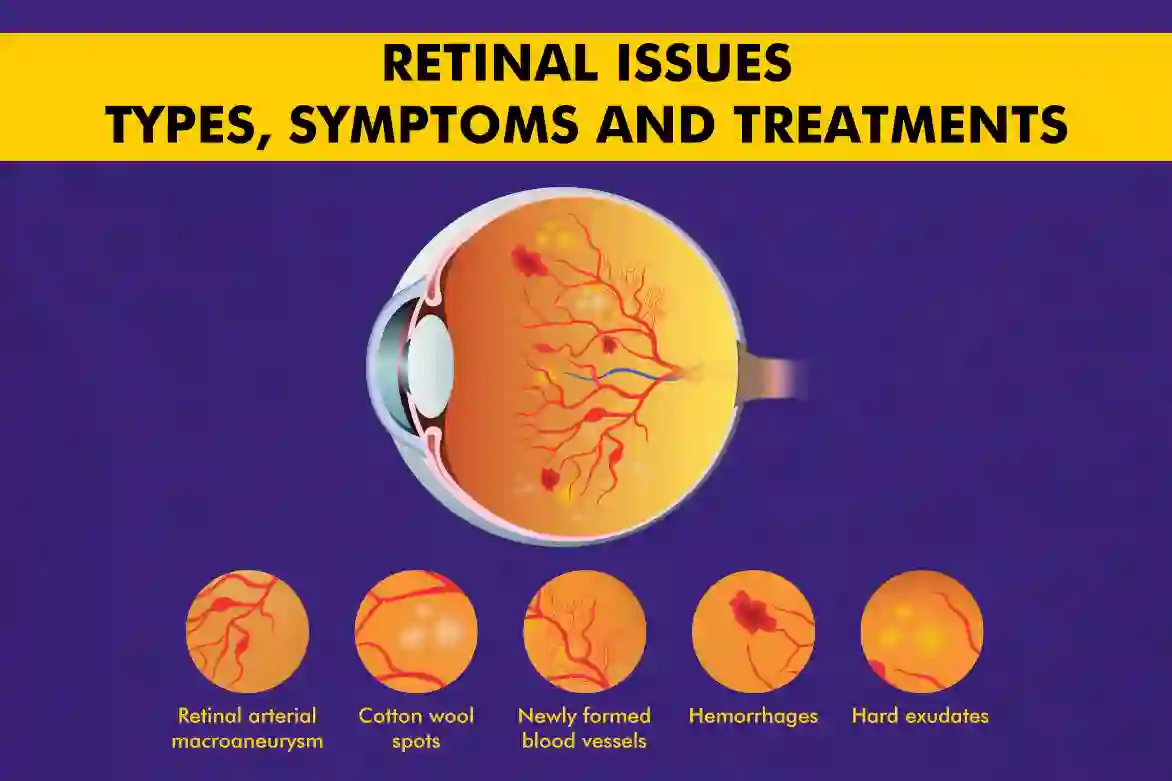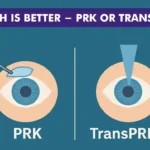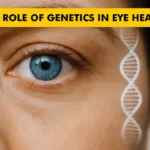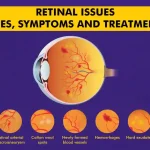The retina is a delicate and essential part of the eye. It is a thin layer of tissue located at the back of the eye that plays a crucial role in vision. The retina contains specialized cells called photoreceptors that detect light and send signals to the brain, allowing us to see. Unfortunately, the retina can be susceptible to various issues that can cause eye problems, affect our vision and overall eye health. Let’s embark on a journey where we will explore the different types of retinal issues, their symptoms, and the available treatments. Understanding these conditions can help individuals recognize warning signs and seek appropriate medical attention.
What Are the Common Retinal Issues?
There are several common retinal issues that individuals may encounter. These include:
- Retinal detachment: This occurs when the retina separates from the underlying tissue, leading to vision loss in the affected area.
- Macular degeneration: This is a progressive condition that affects the macula, the central part of the retina responsible for sharp, central vision.
- Diabetic retinopathy: People with diabetes may develop this condition, which is characterized by damage to the blood vessels in the retina.
- Retinal tears: These are small breaks in the retina that can occur due to trauma or other underlying conditions.
These are just a few examples of common retinal issues, and each condition may have its own unique causes, symptoms, and treatments.
Causes and Risk Factors of Eye Problems
Several factors can contribute to various eye problems, especially the development of retinal issues. These include:
Age: As we get older, the risk of certain retinal conditions, such as macular degeneration, increases.
Genetics: Some retinal disorders have a genetic component, meaning they can be passed down through families.
Chronic diseases: Conditions like diabetes and high blood pressure can increase the risk of developing retinal issues.
Eye trauma: Injuries to the eye can cause retinal tears or detachments.
Smoking: Tobacco use has been linked to an increased risk of retinal problems.
Understanding these causes and risk factors of retinal issues can help individuals take preventive measures and seek early treatment if necessary.
Symptoms of Retinal issues
The symptoms of retinal issues can vary depending on the specific condition. However, some common signs to watch out for include:
- Blurred or distorted vision
- Floaters or dark spots in the field of vision
- Flashes of light
- Difficulty seeing in low light or at night
- Loss of peripheral vision
If you experience any of these symptoms, it’s important to consult with an eye care professional for a comprehensive eye examination.
Types of Retinal Diseases
There are various types of retinal diseases that can impact vision. Some of the most common ones include:
- Age-related macular degeneration (AMD): This is the leading cause of vision loss in individuals over the age of 50. It affects the macula, leading to a gradual loss of central vision.
- Diabetic retinopathy: As mentioned earlier, this condition occurs in individuals with diabetes and can cause damage to the blood vessels in the retina.
- Retinal vein occlusion: This occurs when a blood vessel in the retina becomes blocked, leading to vision loss in the affected area.
- Retinitis pigmentosa: This is a group of genetic disorders that cause a gradual loss of vision due to the breakdown and loss of cells in the retina.
These are just a few examples of retinal diseases, and each condition may require different treatment approaches.
Retinal Issues That affect your Vision
Retinal issues can have a significant impact on vision. Some conditions can cause partial or complete vision loss in the affected eye or area of the retina. For example, retinal detachment can lead to a curtain-like shadow of a sudden decrease in vision. Macular degeneration can result in a loss of central vision, making it difficult to read, recognize faces, or perform other detailed tasks.
It’s important to seek prompt medical attention if you experience any sudden changes in your vision or notice any warning signs of retinal issues.
Diagnosis of Retinal Diseases
Diagnosing retinal issues typically involves a comprehensive eye examination performed by an eye care professional. The examination may include various tests, such as:
- Visual acuity test: This measures how well you can see at different distances.
- Dilated eye exam: The eye care professional uses eye drops to dilate your pupils and examine the retina and other structures at the back of the eye.
- Optical coherence tomography (OCT): This non-invasive imaging test provides detailed cross-sectional images of the retina, allowing the doctor to assess its thickness and detect any abnormalities.
- Fluorescein angiography: This test involves injecting a dye into your arm and taking photographs as the dye flows through the blood vessels in your retina.
These tests help in determining the type and severity of the retinal issues, guiding the appropriate treatment plan.
Treatment Options for Retinal Disorders
The treatment options for retinal disorders can vary depending on the specific condition and its severity. Some common treatment approaches include:
Medications: In some cases, medications may be prescribed to manage the underlying cause of the retinal issue or to slow down its progression.
Laser therapy: This involves using a laser to seal leaking blood vessels, treat retinal tears, or destroy abnormal blood vessels in the retina.
Vitrectomy: This surgical procedure involves removing the gel-like substance (vitreous) from the center of the eye to treat conditions like retinal detachment or macular holes.
Intraocular injections: Medications can be injected directly into the eye to target specific retinal conditions, such as age-related macular degeneration or diabetic retinopathy. Anti VEGF injections are most commonly used among all.
It’s important to consult with an ophthalmologist or retina specialist to determine the most appropriate treatment option for your retinal issues.
Preventing Retinal Issues
While not all retinal issues can be prevented, there are steps individuals can take to reduce their risk or delay the progression of certain conditions. Some preventive measures include:
- Regular eye exams: Routine eye examinations can help detect any early signs of retinal issues and allow for timely intervention.
- Managing chronic diseases: Proper management of conditions like diabetes and high blood pressure can help reduce the risk of developing retinal diseases.
- Protecting your eyes: Wearing protective eyewear during activities that pose a risk of eye injury can help prevent retinal tears or detachments.
- Healthy lifestyle choices: Maintaining a balanced diet, exercising regularly, not smoking, and protecting your eyes from harmful UV rays can all contribute to better retinal health.
By adopting these preventive measures, individuals can take an active role in maintaining their retinal health.
Conclusion
Retinal issues can significantly impact an individual’s vision and overall quality of life. It’s essential to be aware of the common types of retinal issues, their symptoms, and the available treatment options. Regular eye exams and early intervention are crucial in managing these conditions effectively.
If you suspect any retinal issues or experience changes in your vision, consult with an eye care professional for a comprehensive evaluation. Remember, your vision is precious, and taking proactive steps to protect it is of utmost importance.
FAQs
What are the symptoms of a retinal problem?
Symptoms can include sudden flashes of light, floaters, blurry vision, or a shadow or curtain in your field of vision.
Can retina problems be cured?
Treatment options exist depending on the condition, ranging from medication to surgery. Some conditions can be managed effectively.
What is the most common retinal disease?
Age-related macular degeneration (AMD) is the most common retinal disease.
How to improve retina?
Eating a balanced diet rich in antioxidants and omega-3 fatty acids, protecting your eyes from UV rays, and regular eye exams can help maintain retinal health.
Can the retina repair itself?
In some cases, the retina can heal itself, especially if the damage is minor. However, severe damage often requires medical intervention.
Which fruit is best for the retina?
Fruits high in antioxidants like berries (blueberries, strawberries) and citrus fruits (oranges, lemons) are beneficial for retinal health.





